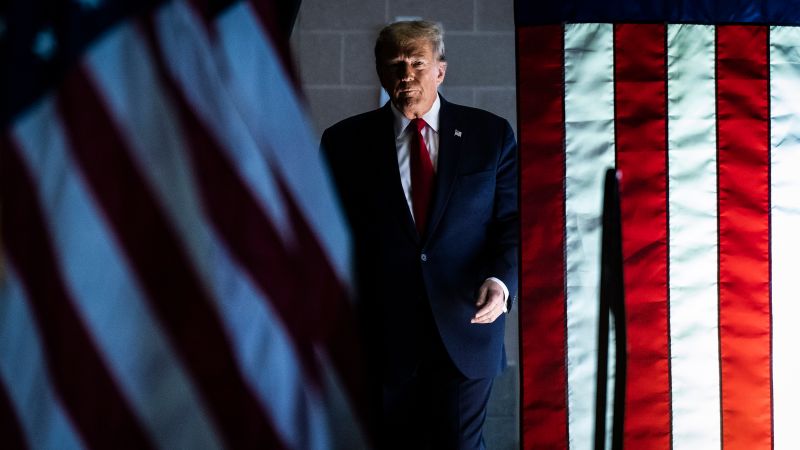Former President Donald Trump promises his supporters at campaign rallies that if given another term in office, he will “demolish the deep state” by transforming the federal government’s size and scope to align with his own views. He plans to double down on executive orders that were previously blocked or failed to fully implement, seeking to eliminate civil service protections that have been in place for over 140 years. Among his plans is to make every executive branch employee fireable by the president and move as many as 100,000 positions out of Washington, D.C.
While Trump’s proposals are embraced by his supporters, policy experts warn that such actions could politicize the federal workforce, force out experienced employees, and lead to corruption and political patronage. By reclassifying civil service workers as political appointees who can be fired at will, Trump’s initiatives could fundamentally alter the American public sector. Critics argue that such changes would jeopardize the nonpartisan nature of the civil service established in 1883 and could potentially threaten democracy by enabling cronyism.
Russell Vought, an architect of Trump’s second-term plans, envisions groundbreaking changes that would dismantle or remake various government departments. The reissuing of Trump’s 2020 executive order, Schedule F, is a key component of Project 2025, which aims to transform the federal government’s workforce. While the Trump campaign has distanced itself from specific recommendations, including those in Project 2025, the policies outlined align closely with Trump’s stated goals, such as reissuing his executive order on his first day back in office.
Trump’s attempts to relocate federal agencies from Washington, D.C., to other locations have led to significant disruptions and loss of expertise in the past. Moving agencies like the Bureau of Land Management and two within the Department of Agriculture resulted in the departure of experienced employees and reduced effectiveness, according to reports. The financial savings claimed by the Trump administration were disputed by organizations like the Government Accountability Office, which noted the detrimental effects on agency performance and knowledge.
Concerns extend across party lines, with some Republicans cautioning against hiring based on political loyalty. Policy experts stress the importance of maintaining a professional civil service immune from partisan influence to uphold democracy and ensure effective governance. President Joe Biden has taken steps to block potential reclassifications of federal workers as political appointees, setting up barriers to such changes in the future. The potential impact on institutions like the justice system and intelligence agencies is also a cause for concern.
Amid allegations of using the Department of Justice to target political opponents, Trump’s threats to investigate Joe Biden and other perceived adversaries highlight his willingness to utilize executive power for personal gain. With allies like Jeffrey Clark and Russell Vought advocating for robust executive authority, the potential for abusing federal institutions escalates in a second Trump term. Policy blueprints like Project 2025 outline sweeping changes to various government agencies and target perceived corruption within national security and intelligence sectors, raising alarms about the erosion of democratic principles and the potential for abuse of power.


